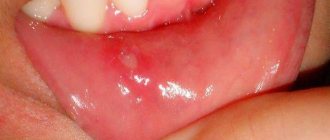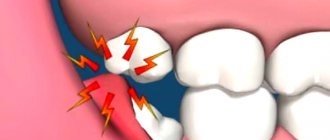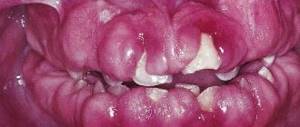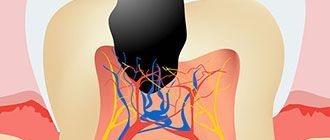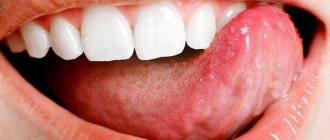If a person's sweat smells like acetone, this is considered a symptom of certain disorders in the body. The smell of sweat may indicate problems with the kidneys, metabolism, complicated diabetes mellitus, or the presence of an infection in the body. Therefore, it is recommended to conduct an examination of your body to detect the cause of the acetate odor and undergo a course of therapy so as not to contribute to the worsening of the disease.
How does the smell appear?
Fat metabolism disorders are the main reason why a person smells of acetone. What does it mean? During the metabolism of fatty acids, their breakdown products are formed - ketone bodies. They are the ones that give off the acetate smell.
Normally, the level of ketone bodies in the body is very low. They are quickly oxidized in the muscles and lungs, releasing large amounts of energy.
If a person smells like acetone, this means that ketones are accumulating in the body. This is observed when there is a violation of carbohydrate metabolism. Ketone bodies negatively affect the acid-base balance in the body. They shift the pH to the acidic side. Doctors call this disorder ketoacidosis. This condition poses a great health risk. Excess ketones have toxic effects on various organs.
Acetone in the body
There is only one way for acetone to get into a child’s blood. It is considered an element of partial breakdown of fat and protein elements. For this reason, toxic substances called ketones accumulate in cells. Acetone refers specifically to their varieties.
First, ketones are oxidized almost to the point of harmless substances, after which they leave the body in urine and through the lungs. If, in comparison with the amount removed, the growth of toxic components is significantly higher, they do not have the best effect on the body’s systems, including the full functioning of the brain.
Possible reasons
What disease causes a person to smell of acetone? The accumulation of ketones can occur with various ailments. Most often, ketoacidosis develops against the background of the following pathological conditions:
- diabetes mellitus;
- pathologies of the liver and kidneys;
- disorders of the thyroid gland;
- infectious diseases;
- deficiency of carbohydrates in food;
- long fasting.
Next, we will consider in detail the above diseases and methods of treating them.
Diabetes
Why does a person's breath smell like acetone? Most often this is associated with diabetes. With this disease, the patient has reduced production of insulin by the pancreas. This hormone is necessary for the processing and absorption of glucose, which serves as a source of energy for the body. Insulin deficiency leads to serious consequences. Unsplit glucose is no longer absorbed by tissues. The body has to take energy from proteins and fats. Active breakdown of lipids occurs, which causes excess ketones.
If a person with diabetes smells of acetone, this is an alarming sign. Such symptoms indicate a decompensated form of the pathology, which is difficult to treat. In severe cases, the patient falls into a ketoacidotic coma. This is a life-threatening condition.
Diabetic ketoacidosis is accompanied by other symptoms:
- thirst;
- frequent and excessive urination;
- severe weakness;
- drying of mucous membranes and skin;
- drowsiness;
- nausea and vomiting;
- lethargy;
- headache.
Ketoacidosis in diabetes is treated in a hospital setting. If the patient is in a coma, he is placed in the intensive care unit. Patients are given infusion solutions, this helps eliminate metabolic disorders. The optimal daily dosage of insulin is selected for the patient. Therapy is carried out under the control of the level of sugar and ketone bodies in plasma and urine.
Reasons why your child’s breath smells like acetone
Halitosis is often accompanied by an increase in temperature.
Medicine considers this unpleasant phenomenon with the Latin word – halitosis. If a child’s (including infants and teenagers) breath smells like acetone, this is a characteristic signal of acetone syndrome.
Often the problem is accompanied by a similar aroma of urine, nausea and vomiting with an increase in body temperature.
The disease acetonemia is perceived by many doctors as a rather serious disease; the child’s appetite decreases as the work of metabolism increases.
This promotes an increase in the number of ketone cells, which is indicated by the following signals:
- the child’s breath smells like acetone and there is weakness and muscle weakness;
- pale coloration of the skin surface, and the appearance of bluish circles in the eye area;
- a sharp rise in body temperature, and it can rise above 38 degrees;
- paroxysmal pain in the intestinal tract;
- the occurrence of vomiting immediately after eating food;
- breath smelling of acetone.
Glucose is recognized as a key primary source of energy supply to body cells. Next, according to formation, adipose tissues are located. With a lack of glucose, cells switch to fats. For this reason, the body gradually accumulates not only acetone, but also other toxic substances. In more detail, the reasons why a child’s breath smells like acetone are indicated in the table below:
| Origin of the disease | Nature of the disease |
| Unbalanced diet | Violating the rules of eating places an excessive burden on the body. Taking a small amount of glucose causes protein and fat to break down, increasing the percentage of acetone. The child's body needs an increased supply of glucose. |
| Diabetes | The disease is associated with impaired carbohydrate metabolism. A small percentage of insulin finds it difficult to cope with the required amount of glucose, which is why it gradually accumulates. The brain lacks glucose, so it switches the body to an increased operating mode, thereby forming a lot of ketone bodies. The child constantly experiences a feeling of thirst and frequent urination. Even when a patient has an excellent appetite, he still loses weight. |
| Acetonemia | When a strong acetone smell appears only once, we can talk about an acetone crisis. If the syndrome manifests itself systematically, this indicates acetonemic syndrome. |
| Infection | The child's body suffers from dehydration. The risk of developing the disease increases with long-term illnesses and poor food intake. Boys are predominantly affected. |
| Neuro-arthritic diathesis | Often the disease manifests itself in girls. Due to poor liver function, blood cells gradually accumulate ketone elements and uric acid. |
| Thyroid diseases | The gland is responsible for the volume of hormones. With any dysfunction, hormones are born in double numbers, which accelerates the breakdown of protein and fatty substances. |
| Liver and kidney problems | In the body, these two organs are necessary for filtration, ridding the body of everything that is not needed. If their functioning is not stable, substances begin to accumulate. |
| ENT diseases, etc. | The appearance of a characteristic odor during viral infections and ENT ailments appears due to an increase in metabolic rate and decreased appetite. As a result, accelerated processing of proteins and fats occurs, and an increase in the percentage of ketone bodies. |
Liver diseases
If a person smells of acetone when breathing, this may indicate liver pathology. It is in this organ that the process of breakdown of fatty acids and the formation of ketone bodies occurs. When liver cells are damaged, lipid metabolism is disrupted. This leads to the accumulation of ketones.
Most often, ketoacidosis occurs with hepatitis. Liver inflammation is accompanied by the following symptoms:
- yellowing of the mucous membranes and whites of the eyes;
- skin itching;
- a feeling of heaviness on the right under the ribs;
- fatigue;
- nausea;
- poor appetite.
The patient is prescribed hepatoprotectors, antiviral drugs, as well as a diet limiting spicy, salty and fatty foods.
If the problem is in the nose
Most often, the smell of acetone in the nose is associated with foreign bodies entering the nasal passage.
Moreover, even after the object has been successfully removed, unpleasant sensations may persist for some time.
If the discomfort does not go away for a long time, you need to make sure that there are no wounds on the mucous membrane that could become infected.
- What to do if your nose is constantly itching and itching?
By the way, the second most common reason is damage to the mucous membrane and the development of small foci of infection.
In this case, it is necessary to treat the infection with antiviral or antibacterial drugs. Some of them will have to be taken orally, others are available in the form of a spray and drops.
Remember! One of the reasons that causes unpleasant odors in the nose is ozena: a complex but, fortunately, rare disease.
Renal pathologies
Why does a person's body smell like acetone? This may be due to kidney disease. With nephrosis, metabolism is disrupted. As a result, the excretion of ketones through the kidneys increases. The acetate odor comes from the patient's urine and sweat.
Nephrosis is a disease accompanied by degenerative changes in kidney tissue. The signs of pathology are as follows:
- increased thirst;
- weakness;
- swelling of the face and limbs;
- decreased amount of urine;
- joint pain.
Without treatment, this disease can lead to kidney failure. Usually a person smells of acetone in the early stages of the disease. As the pathology develops, an ammonia smell appears. This indicates a significant deterioration in kidney function.
The patient is prescribed a diet with a high protein content in food and limited salt and water. Corticosteroids and diuretics are indicated.
Reviews
Dear readers, your opinion is very important to us - therefore, we will be glad to hear your feedback about the smell of sweat with acetone in the comments, this will also be useful to other users of the site.
Alina:
I have diabetes and I know firsthand what the smell of acetone is like on the body. There is no way to fix this, so you just have to follow the doctors’ recommendations and mask this smell. I constantly take a shower, use anti-sweat products, turn to traditional medicine and the smell of sweat is not so noticeable.
Egor:
After physical activity, my sweat smells like some kind of ammonia or acetone, generally unpleasant. I went to the doctors, but according to the examination everything was fine. I still don’t know what the reasons are for this. You have to constantly wash and use deodorant.
Thyroid dysfunction
The appearance of a ketone odor may be one of the signs of thyrotoxicosis. With this pathology, the thyroid gland produces an excess amount of hormones. This leads to the following symptoms:
- severe weight loss;
- bulging eyes;
- enlargement of the front of the neck (in severe cases, a goiter appears);
- tachycardia;
- nervousness;
- excessive sweating and feeling hot;
- fatigue;
- tremor of the limbs.
Why does a person smell like acetone with thyrotoxicosis? Thyroid hormones stimulate the fat burning process. Their excess leads to accelerated lipid metabolism. As a result, the patient loses a lot of weight, and ketone bodies accumulate in his body. This is what causes the smell.
A patient with thyrotoxicosis needs to take iodine-based medications. After normalization of the thyroid gland, the unpleasant odor disappears.
Infections
If a person smells of acetone on their body, this may be a sign of infectious diseases. Such pathologies are accompanied by severe intoxication of the body. The ketone odor usually appears during the acute stage of the disease, when the patient has a sharply elevated temperature.
Most often, ketoacidosis is observed with rotavirus infection. This disease is commonly called “stomach flu”. It is most often transmitted through dirty hands, less often through airborne droplets. Signs of infection with rotavirus are as follows:
- sore throat (in the first days of illness);
- diarrhea (the color of feces becomes gray);
- fever;
- frequent vomiting;
- severe weakness.
Why does a person’s body smell like acetone during rotavirus infection? During vomiting and diarrhea, the patient loses a large amount of fluid. In addition, fever is accompanied by severe sweating. This leads to dehydration and poor carbohydrate metabolism. Ketone bodies begin to accumulate in the body, which is the cause of the smell.
No special drugs have been developed against rotavirus. Therefore, treatment can only be symptomatic. During illness, you should try to drink as much fluid as possible. This will help avoid dehydration and the accumulation of ketone bodies.
Poor nutrition
Sometimes it can be very difficult to determine why a person smells of acetone. After all, the examination does not reveal any pathologies in him. In this case, you need to pay attention to your diet. The cause of an unpleasant odor may be a diet with insufficient amounts of carbohydrate foods.
Quite a few people are into ketogenic diets these days. This diet involves a sharp restriction of carbohydrates and a large amount of fat in the diet.
The keto diet is believed to lead to rapid weight loss. However, such a menu can provoke serious metabolic disorders. With a carbohydrate deficiency, active fat burning occurs. In the process of accelerated lipid metabolism, an excess of ketone bodies is formed, which do not have time to be excreted from the body. These substances negatively affect the tissues of the liver, kidneys and pancreas.
If a person smells of acetone, then he needs to immediately review his menu. Otherwise, it can lead to serious pathologies. An acetate smell signals a severe carbohydrate deficiency. In this case, you need to urgently stop following the ketogenic diet.
It is not uncommon for a person to smell like acetone on their breath during a complete fast. The ketone odor is formed by the same mechanism as in diabetes mellitus. During a long period of fasting, the body begins to use its own fat reserves as an energy source. This releases a large number of ketone bodies. These substances have a toxic effect on organs. Therefore, it is better to avoid starvation diets. Excessively long breaks between meals should also be avoided.
Preventive measures
Be sure to regularly visit the dentist with your child as a preventative measure!
It is not advisable to drown out the smell of acetone with fresheners and toothpastes , otherwise in the future you will have to deal with serious diseases. It is good if the family visits the dentist once every six months, since this becomes a habit from an early age.
The first preventive measures start in early childhood in the form of high-quality teeth cleaning. Adults should teach the child to brush their teeth for a long time, and at least twice a day in the morning and evening, and after each meal, rinse their mouth well with plain water.
Habit formation should be carried out immediately after the appearance of the first teeth. Until the age of 7, the mother should be nearby and ensure that the child cleans the teeth and the space between them efficiently and for a long time.
Many fruits, berries and vegetables cope with mechanical cleansing of the oral cavity from various types of bacteria. The thing about mints and sweets is that they dry out the inside of your mouth, which is an ideal environment for pathogens to grow. To prevent dryness from appearing, during sports training and in stressful circumstances, the child should drink liquid.
If the child is still too small, teeth are cleaned using special brushes that adults put on their fingers and clean themselves.
Ketone odor in children
Acetate odor in children can be caused by the same diseases as in adults. Therefore, the child should be shown to a doctor. It is important to remember that diabetes often begins to develop in childhood.
However, in many cases the odor is not associated with pathology. In childhood, ketone bodies oxidize very slowly. This leads to the smell of acetone. This symptom is often observed during puberty, especially during long breaks in food intake. Sometimes the smell appears in a child during times of stress. Doctors suggest that those children whose mothers abused protein foods during pregnancy are prone to ketoacidosis.
In childhood, acetonemic syndrome is also observed. This pathology is characterized by the accumulation of ketones in the body and an acetate odor from the mouth and skin. The causes of the disease have not been precisely established. Acetonemic syndrome occurs in the form of attacks. Suddenly the child experiences severe vomiting, motor and mental restlessness, and headaches. Then this state is replaced by lethargy and drowsiness. Such children are advised to eat a diet high in carbohydrates and limited in fatty foods. To combat dehydration, infusion solutions are administered. Typically, signs of pathology disappear on their own after the child turns 12-13 years old.
Diagnostics
If a person smells of acetone from his mouth or body, this may be a sign of dangerous diseases. It is necessary to undergo diagnostics as soon as possible to identify the cause of ketoacidosis. Which doctor should you visit? First you need to see a therapist. If necessary, the general practitioner will refer the patient to a more specialized specialist.
If ketoacidosis is suspected, the following examinations are prescribed:
- blood test for biochemical parameters;
- urine test for ketone bodies;
- blood test for thyroid hormones;
- Ultrasound of the kidneys and liver.
During the appointment, the doctor also finds out the patient’s dietary habits. After all, ketoacidosis is often triggered by a deficiency of carbohydrates in food.
Nowadays, special glucometers with the determination of ketone bodies are produced for diabetics. This helps to detect signs of ketoacidosis in a timely manner at home.
Treatment of acetone odor and its causes
It’s good if parents contact a specialist as soon as their child’s breath starts to smell like acetone. In this case, the therapeutic course of treatment is aimed at two key areas:
- supplying blood cells with glucose;
- rate of ketone elimination.
If a child is vomiting, doctors recommend giving the child tea with the addition of a small amount of honey. This is necessary so that the amount of glucose has time to be replenished.
The liquid is given one teaspoon every 5 minutes to avoid the manifestation of a secondary gag reflex. The drink must be given at night. It is advisable to alternate tea with still mineral water or rice broth. In severe cases of the disease, glucose is injected into the blood intravenously through a dropper.
You cannot force a child to eat food against his wishes. If he himself asks for food, you can start with bread, cookies, baked apples, light soup or puree made from various vegetables. To avoid dehydration, adults must give the child the required amount of water.
If an increased percentage of acetone is detected, the following medications are used in therapy:
- “Atoxil” - absorb poisons and remove them from the blood;
- "Regidron" - restores the acid-base level;
- "Smecta" - like "Atoxil", makes it difficult to absorb toxic substances through the intestinal tissue.
Immediately after first aid is provided and the acute period of the illness ends, the baby is given the drug “Stimol”. It supplies the body with energy and improves overall condition. Betargin restores liver function quite well. For pancreatic dysfunction, doctors prescribe Creon. Its components improve digestion and give the child vigor.
How to get rid of odor
What to do if a person smells of acetone? You can completely get rid of an unpleasant odor only after eliminating its cause. Therefore, first of all, you need to treat the underlying pathology and avoid too strict diets.
The following recommendations from doctors will also help reduce the odor:
- You should try to consume enough fluid.
- Long breaks between meals should be avoided.
- You should shower regularly and use antibacterial soap.
- Wearing clothes and underwear made from natural fabrics will help reduce sweating.
- It is recommended to use deodorants with zinc and aluminum.
The acetone smell is a rather dangerous symptom that should never be ignored. Timely treatment will help avoid intoxication of the body and damage to organs from ketones.



